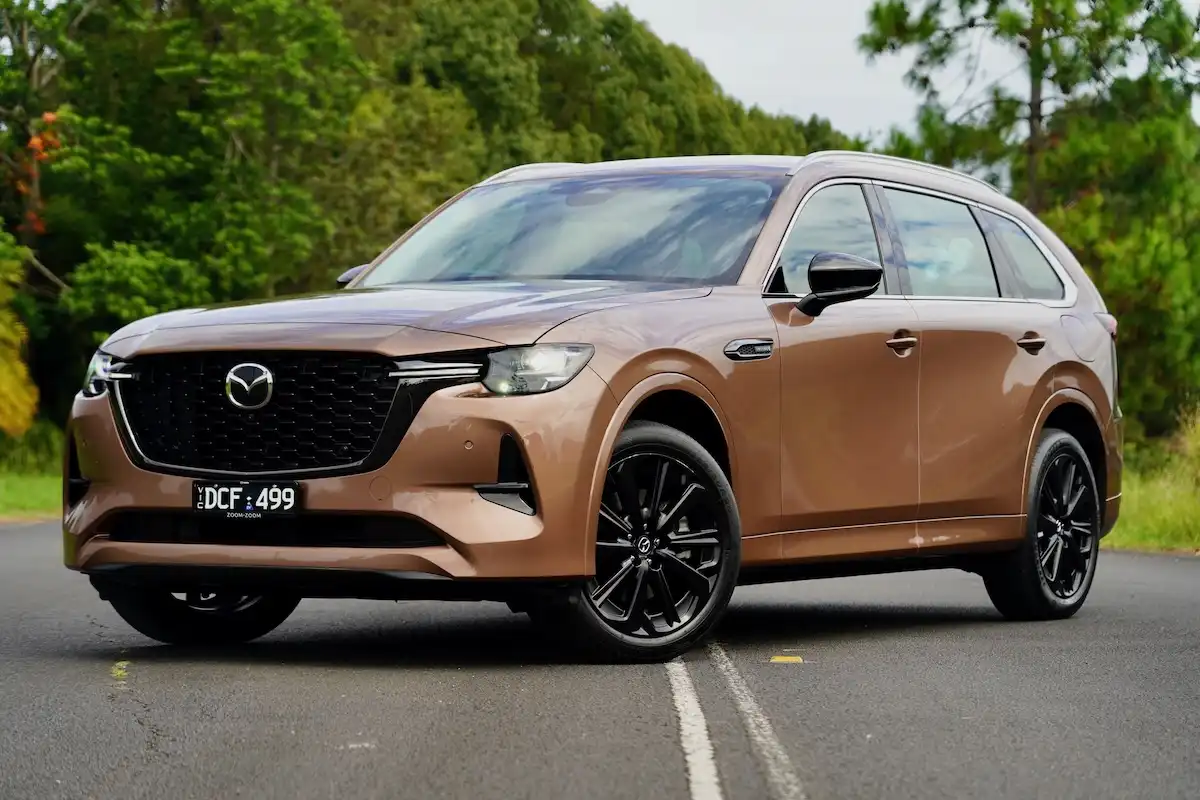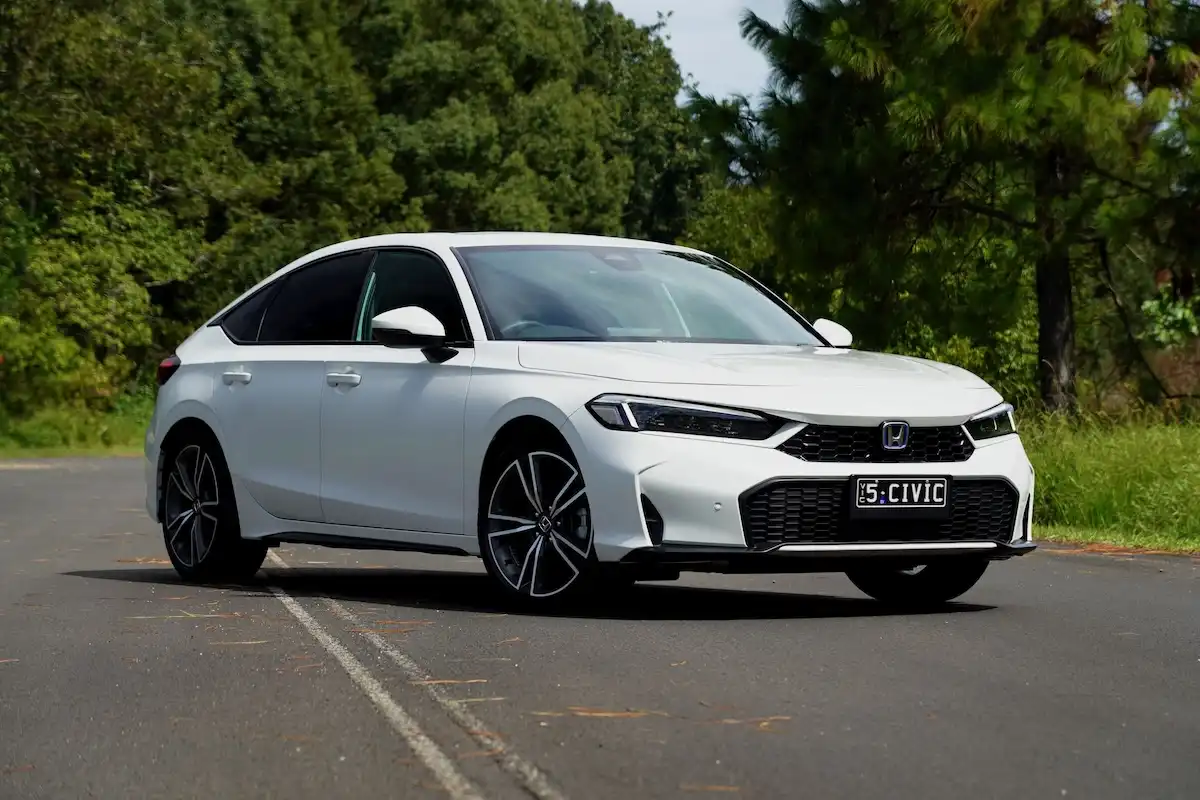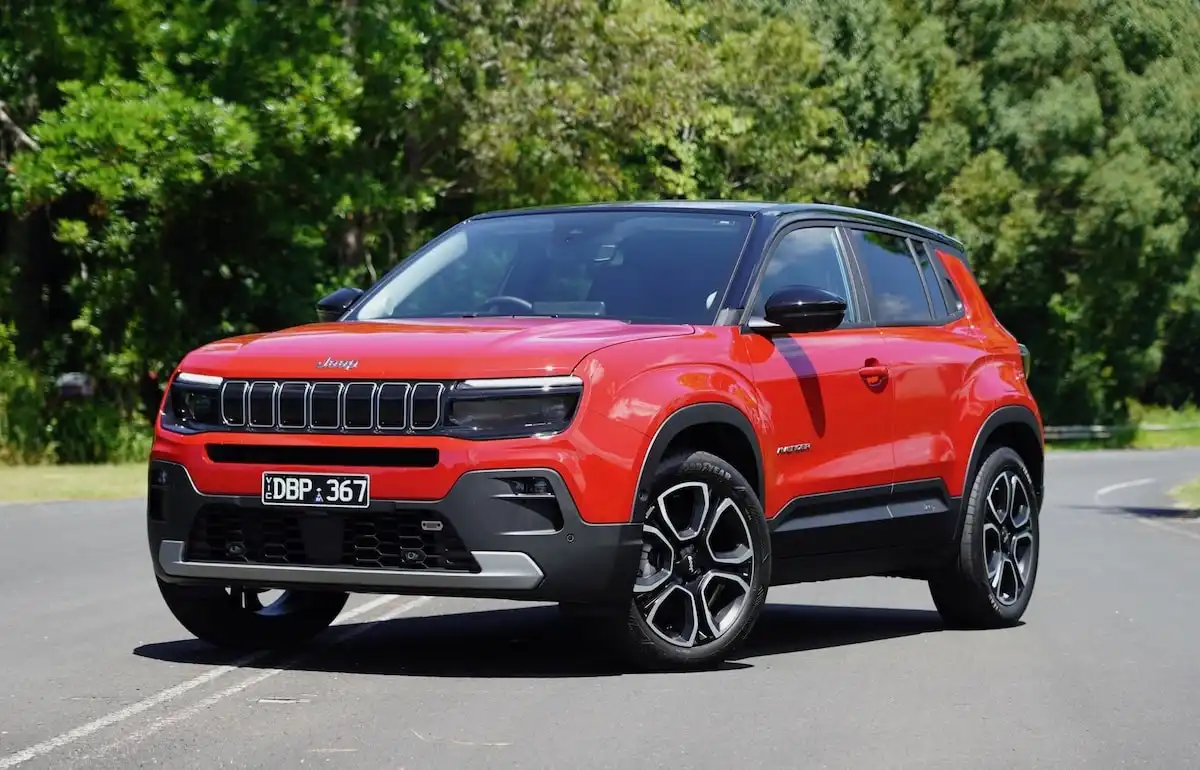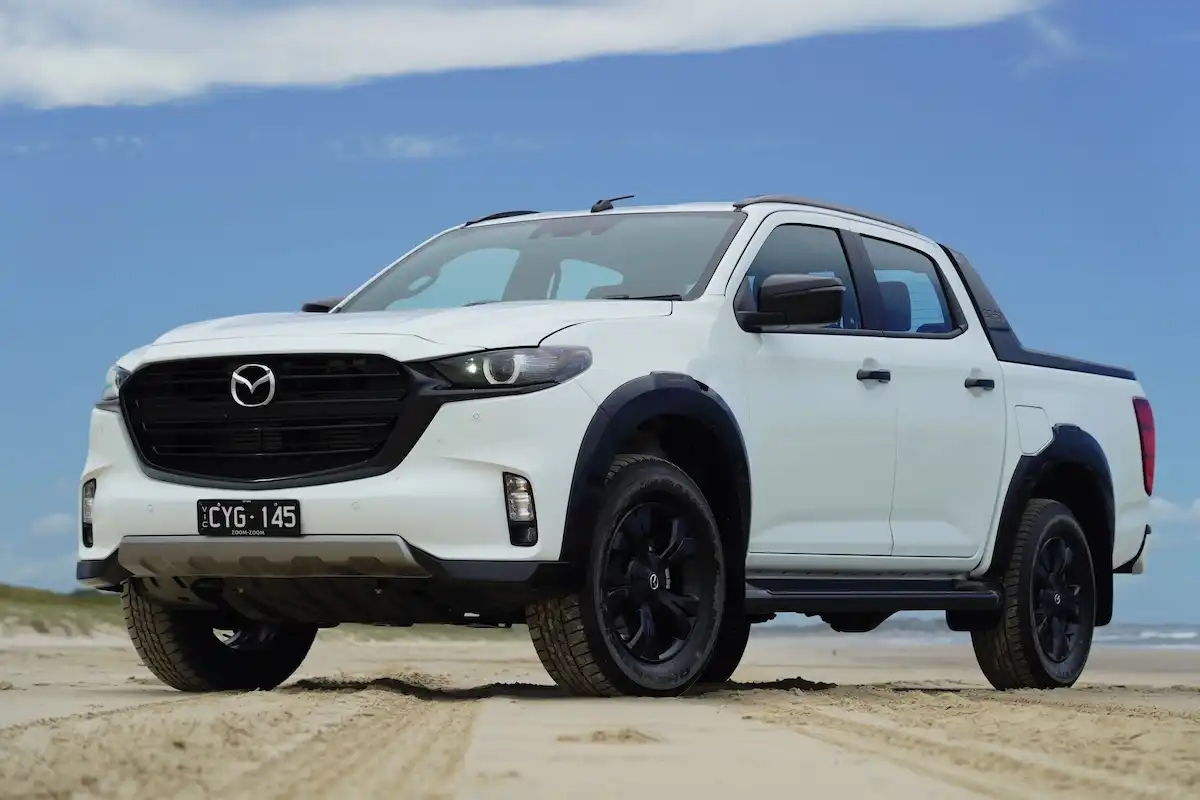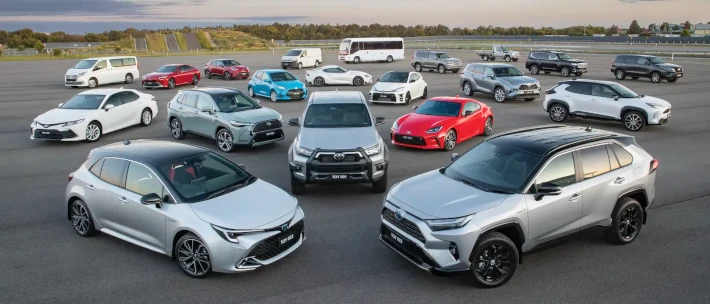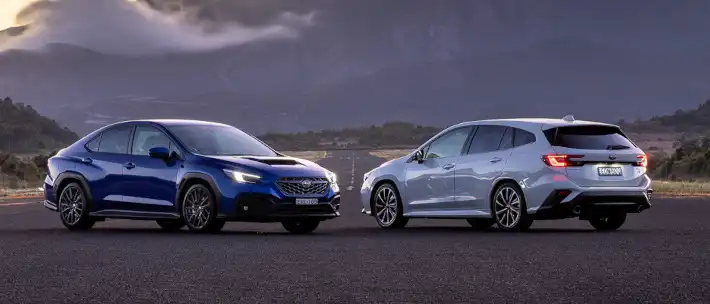While comprehensive insurance is a no-brainer for the purchase of a new vehicle, what if you’re a budget-conscious buyer looking at the second-hand car market and you just want to ensure that any costs for damage caused to another vehicle are covered?
Well, that’s exactly what we’ll be unpacking here as we discover more about all the different types of car insurance in Australia to lay out your full list of options.
Different Types of Car Insurance in Australia
There are four types of car insurance available to Australian buyers, which includes comprehensive, third-party fire and theft, third-party property damage and compulsory third-party insurance, otherwise known as a CTP policy.
-
Compulsory Third Party Insurance (CTP)
-
Third Party Fire & Theft Insurance
-
Third-Party Property Insurance
-
Comprehensive Insurance
Compulsory Third Party, or CTP Insurance
Compulsory third party, otherwise known as CTP insurance is a policy that every road-legal Australian vehicle must have in order to drive.
While they come in different shapes and sizes depending on which State or Territory you live in, the purpose of a CTP policy is the same, in that it covers your liability for any injuries and/or deaths caused to a third party in an accident.
-
What’s Covered?
-
- Costs for injuries and/or deaths caused by an accident
- Medical expenses to treat injuries from that incident (six months)
- Rehabilitation expenses (six months)
- Lost income payments
- Injury liability for other people driving your vehicle
-
What’s Not Covered?
-
- Damage to your vehicle
- Damage to a third party’s vehicle
- Medical expenses if you’re charged with a driving offence related to the accident
Third Party Fire & Theft Insurance
Third-party fire & theft insurance policies cover the cost of damage to another vehicle in the case of an accident, as well as your vehicle if there is damage caused by a malicious theft or a fire.
These policies cover you in the event of your vehicle being stolen, or maliciously damaged in the process of a theft, as well as any damage caused by a fire. Depending on the policy, you might even find extras like the cost of towing, rental vehicles, or damage caused by an uninsured driver.
-
What’s Covered?
-
- Damage to another vehicle and/or property
- Damage to your vehicle (by fire and/or theft)
- Costs incurred by theft or fire
-
What’s Not Covered?
-
- At-fault damage to your vehicle in an accident
- Storm, hail or flood damage
Third-Party Property Insurance
Third-party property insurance policies offer coverage for the costs associated with fixing or replacing another vehicle in an accident, but not your vehicle.
As the name suggests, these policies covers the cost of damages to a third party’s property, but will not cover the cost of repairing or replacing your vehicle, regardless of who is deemed at fault.
-
What’s Covered?
-
- Damage to other vehicles and/or property
-
What’s Not Covered?
-
- Costs for repairing/replacing your vehicle in an accident
- Theft
- Damage caused by fire, floods, storms or hail
Comprehensive Insurance
Comprehensive insurance is your one-stop shop when it comes to keeping your vehicle - and your wallet - protected in the event of an accident.
Comprehensive insurance policies not only cover the costs associated with repairing or replacing a third party’s vehicle, but they’ll also cover damage to your vehicle, often regardless of who is deemed at fault in the accident.
Not only that, the best comprehensive policies also offer coverage in the event of theft, storm, floor or fire damage, giving vehicle owners by far the most confidence and peace of mind that their vehicle is protected, regardless of what happens.
-
What’s Covered
-
- Damage to your vehicle - often regardless of fault
- Damage to a third party’s vehicle and/or property
- Damage caused by malicious theft and/or fire
- Flood, storm and hail damage
-
What’s Not Covered?
-
- Third-party injury liability
Are Insurance Extras Worth It?
Insurance policies, particularly comprehensive policies have a number of extras that you can bundle into your policy, some of which make a huge difference in the event of making a claim.
Some of the most worthwhile car insurance extras include additional coverage for the damage, loss or theft of personal items and valuables inside the car, roadside assistance coverage, windscreen replacements and the costs of hiring a temporary vehicle while your personal car is out of use.
Tips to Get a Better Deal On Your Next Insurance Policy
Now that we’ve covered all you need to know about insurance policies here in Australia, let’s toss up some of the easiest ways you can get a better deal on your next policy.
-
Adjusting Your Excess: This is an easy way to reduce the cost of your insurance premiums, with a higher agreed excess price correlating with a more affordable policy.
-
Buy Online: Most of Australia’s major insurers offer discounts for those purchasing a premium online, with some offering policy discounts for new customers.
-
Keep it Garaged: Insurance companies offer more competitive rates for vehicle owners that keep their vehicle safe and secured in a garage, rather than parked on the street overnight. If your garage has surveillance cameras fitted, this can also reduce your premium.
-
Kilometre Limits: If you’re looking to cover a secondary vehicle, opting for an insurance policy with a pay-as-you-drive or kilometre limit offers significant savings over a standard policy.
-
Pay Annually, Not Monthly: While it might seem more attractive to break down your policy into more managable month-sized chunks, paying for a 12-month policy is almost always the cheapest option; otherwise shop around for month-to-month policies that don’t charge extra.
-
Shop Around: While there are some decent loyalty programs on offer, actively comparing quotes from other insurance companies is a useful tool when talking with your current insurer. If they’re unable to match the policy prices you’ve found, simply change insurers and pocket the change.
-
Drive Safe, Not Hard: Arguably the best way to keep your insurance costs low is to prove to insurers that you’re a safe driver. A clean driving record with a no claims history will make you eligible for no-claim sign-up discounts and bonuses moving forward.
Get in touch with one of our Car Buying Specialists today.
Request a quoteWhat are the main exclusions of car insurance policies?
Typically, there are a number of problem areas that can cause an insurer to refuse payment when making a claim, if certain criteria in the product disclosure statement aren’t met. These include any damage inflicted to the vehicle that is intentional, or if the car doesn’t meet that state’s requirements for a road-worthy car at the time of an accident. Other exclusions include the presence of illegal drugs in the bloodstream, or a driver that is under the influence of alcohol at the time of the event in question. Finally, any damage inflicted to your vehicle or a third-party’s vehicle by an unlicensed driver is unlikely to be covered by any insurance policy.
What is the Best Type of Car Insurance?
The best insurance policy is entirely subjective, and remains dependent on your personal preference for coverage. If, for example, you have recently purchased a new car, comprehensive insurance is the most logical option, because it covers any damage inflicted to your vehicle, regardless of who is deemed at fault. For those that are driving a used car that is not too valuable, though, a policy like third party property could be the best option, which saves you from paying huge amounts of money in the event of hitting an expensive vehicle. We can see, then, that the ‘best’ type of car insurance remains circumstantial, however some of the most competitive policies will include benefits like no-claim discounts and electing your chosen excess amount.
How can I save money on my car insurance?
The best way to ensure you’re getting the best possible price for your insurance policy is to obviously get multiple quotes from multiple insurers, as well as look at modifying the policy in a way that can save you money. There are a number of online platforms that can help connect you with the cheapest insurer, and we’d encourage you to get a quote from every operating insurance company in Australia to get an idea of the pricing landscape for your policy. Other simple ways to save money on your car insurance policy is to potentially increase the excess that you’ll pay in the event of an accident, which can reduce your overall policy cost.
What type of car insurance is cheapest?
Compulsory third party (CTP) insurance is the cheapest form of insurance that you’re required to purchase in order to be a legal driver on the road here in Australia. For elective insurance policies, however, third party property policies are the cheapest type of car insurance due to their limited coverage terms. As a general rule, the more coverage on offer in the policy, the more expensive it will be, which is why comprehensive insurance policies are the most expensive form of insurance, but they offer the largest pool of benefits in the event of an accident.
How can I make my car insurance quote cheaper?
As we’ve already discussed, shopping around is absolutely essential in finding the cheapest car insurance quote. While you can’t change your driving history, there are, however, some other things you can do to minimise the cost of your quote across the board with insurers.
These include things like asking for multi-policy discounts, avoiding sports cars and performance vehicles, ensuring your vehicle is garaged, if possible, enquiring about pay-as-you-drive policies if you don’t drive very often, and even increasing your excess in the event of an accident.
Buying a new car? We can save you time and money.
Get in touch with one of our Car Buying Specialists today.
Request a quote
